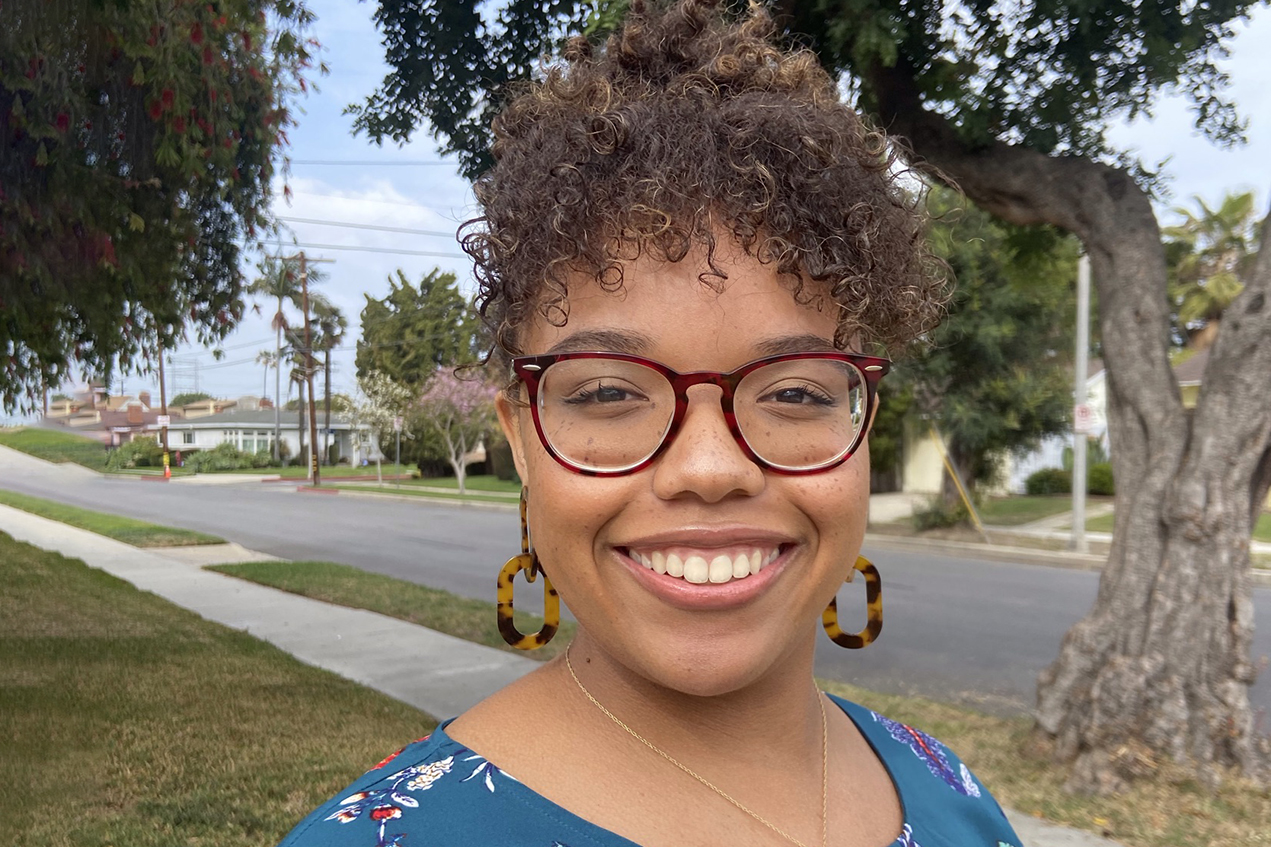Taylor Montgomery is driven by questions.
When she was little, she would always press her mother with queries, wondering why and how the world worked. An educator herself, Montgomery’s mother always nurtured her daughter’s curiosity. When the family would go to bookstores, her mother would try to coax her to a fiction story, but Montgomery would gravitate toward the math workbooks.
“My mom would be confused,” Taylor said with a laugh. “No one in my immediate family was strong in math. But X plus Y equals Z — there’s a certainty.”
This constant sense of curiosity has kept Montgomery intellectually fulfilled, and now that Montgomery is set to graduate with a master’s degree in biokinesiology from the USC Division of Biokinesiology and Physical Therapy, she is ready to take her inquisitive nature to the next level.
Biokinesiology is a perfect match for her skill set, she said: she’s always been drawn to solving problems using math. But, the sports aspect is more of a stretch.
“I’m not someone athletically skilled. I did cheerleading when I was young — for like a day,” she said. “I played volleyball for a day, and that was the worst day in sports for me.”
Playing with rockets
Montgomery attended an all-girls Catholic school, before getting accepted into Fisk University, a historically Black college in Nashville, Tenn., on a fully funded merit-based scholarship. There, she joined her school’s rocket team and fell in love with building rockets.
“It was inspiring to see a bunch of Black and minority students build rockets without engineering degrees,” she said. “It’s about problem solving.” She became the second woman ever to lead the team.
During college, she had an internship at East Carolina University in biomechanics, which applied her physics acumen from the rocket team to humans — and even better, because “humans talk back to you, and I like that.”
After having received funding through a National Institutes of Health research training program for individuals from underrepresented groups, Montgomery reached out to Associate Professor of Clinical Physical Therapy Susan Sigward, PhD, at USC to see if there were any learning opportunities. It turned into a summer of tinkering with wearable technologies and the experience helped shape her.
“Even from day one, she was like, cut out the imposter syndrome,” Montgomery recalled about her tough-love mentor.
After her summer working with Sigward, Montgomery knew USC was the place she wanted to be, even though it was a different learning environment than the ones she’d known growing up. “I’ve had a predominantly Black education up to USC,” she said. “It’s different in that this is the most diverse place I’ve ever been. But I’ve grown a lot meeting new people from different cultures.”
From rockets to race cars
One field in which Montgomery is interested in working is auto racing — specifically Formula One racing. It might seem like Formula One drivers are just sitting in a car, but they’re actually athletes, Montgomery said. “They will drive around a corner going over 100 miles per hour, and the gravity they experience is magnitudes greater than their body weight. That takes athletic ability.”
During her studies at USC, Montgomery did a project using wearables to assess driver performance and found that most resources were put into the car, instead of the athlete controlling the car. “In Formula One, I don’t know if there’s anyone who exclusively functions as a sports scientist for the athlete driving the car.”
In the next decade, Montgomery doesn’t know where she’ll find herself — she’s still developing skills that can be applied across different fields, but she’s sure her curiosity will guide her through. This summer, she has a fellowship to explore different parts of sports and technology.
“I see myself as growing and being successful on my own terms and still giving back to mentor and recruit minorities like myself. I think I will only be the only woman or the only Black woman in most places I reach.”
— Katharine Gammon


